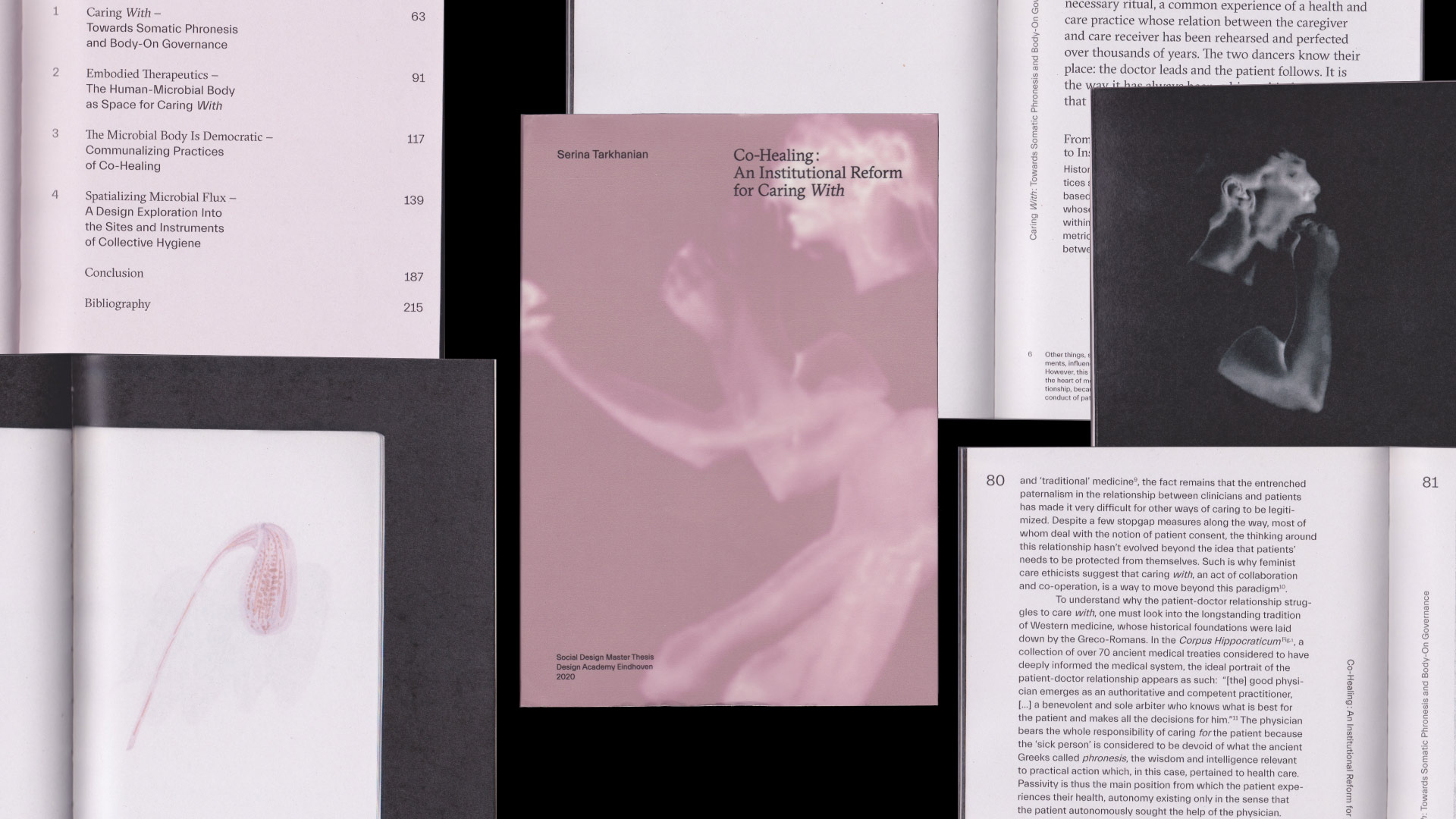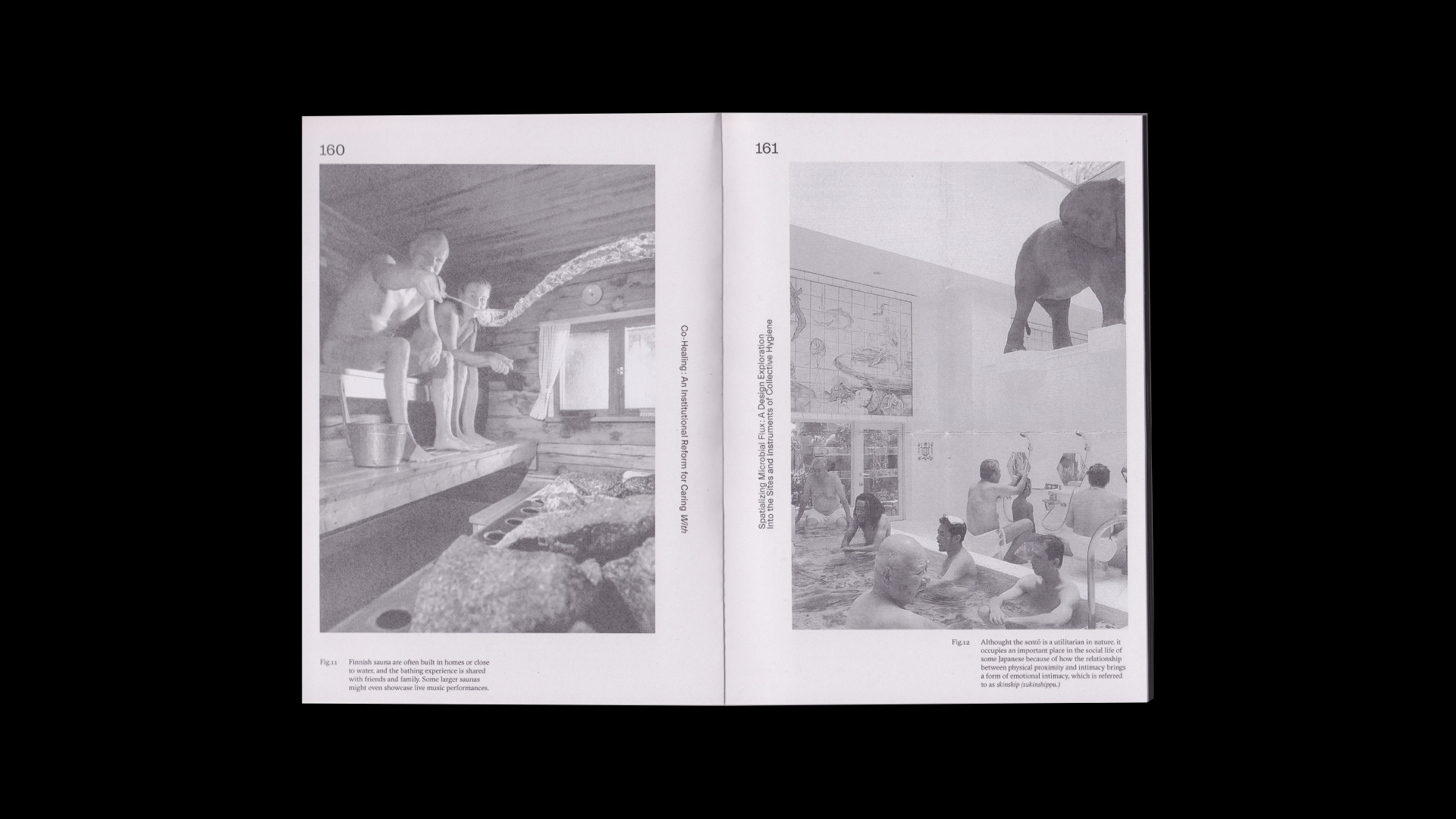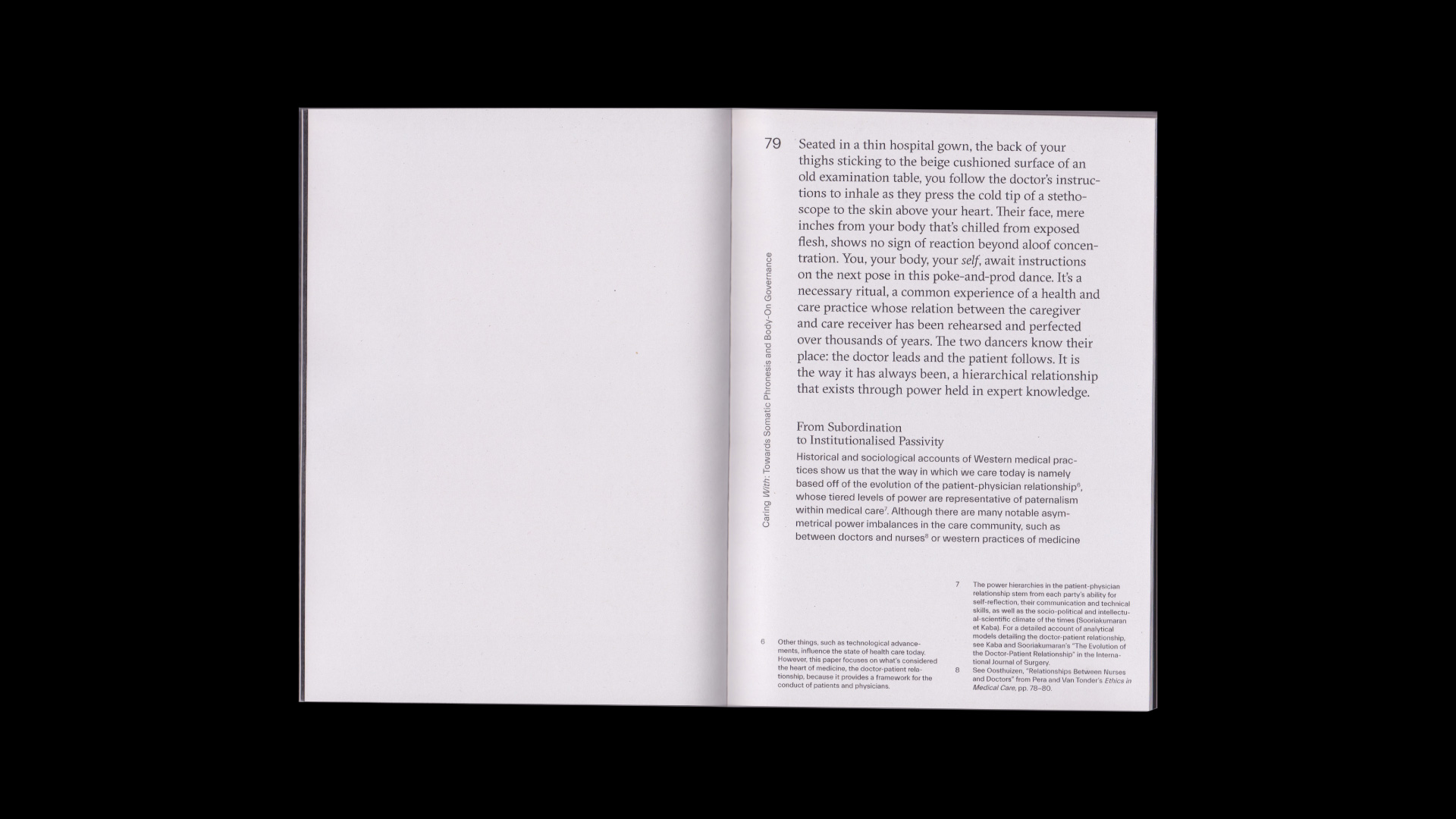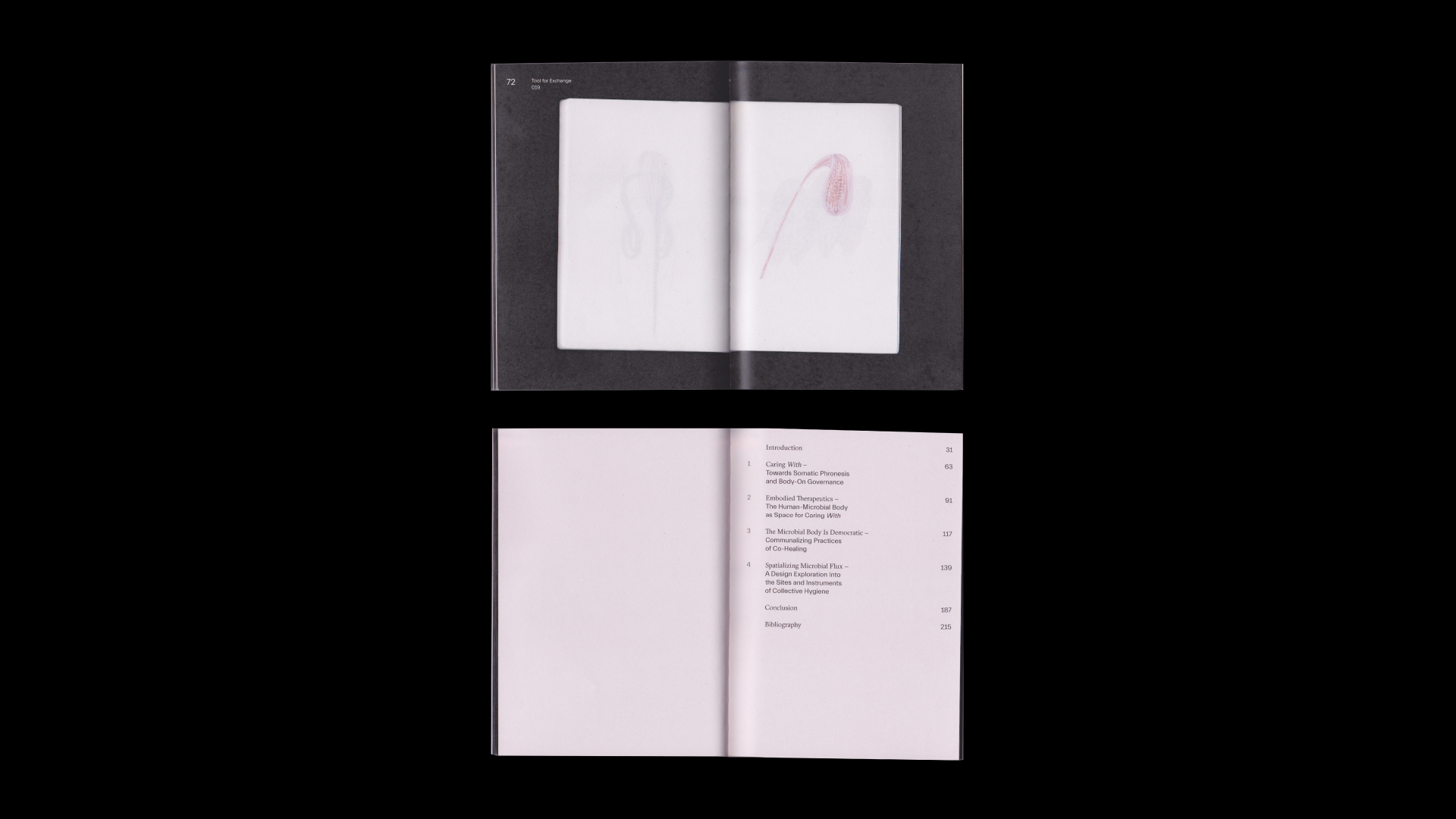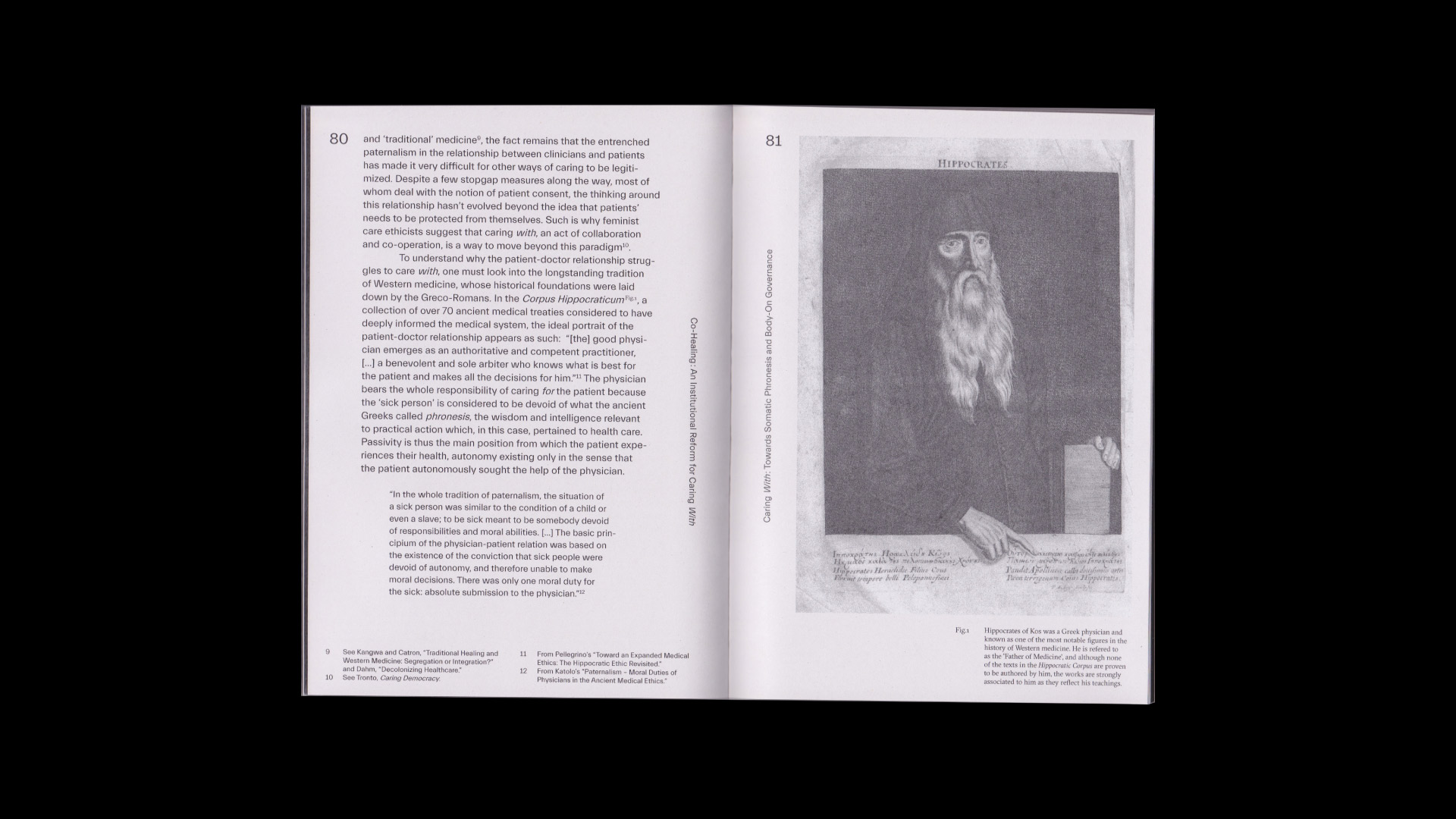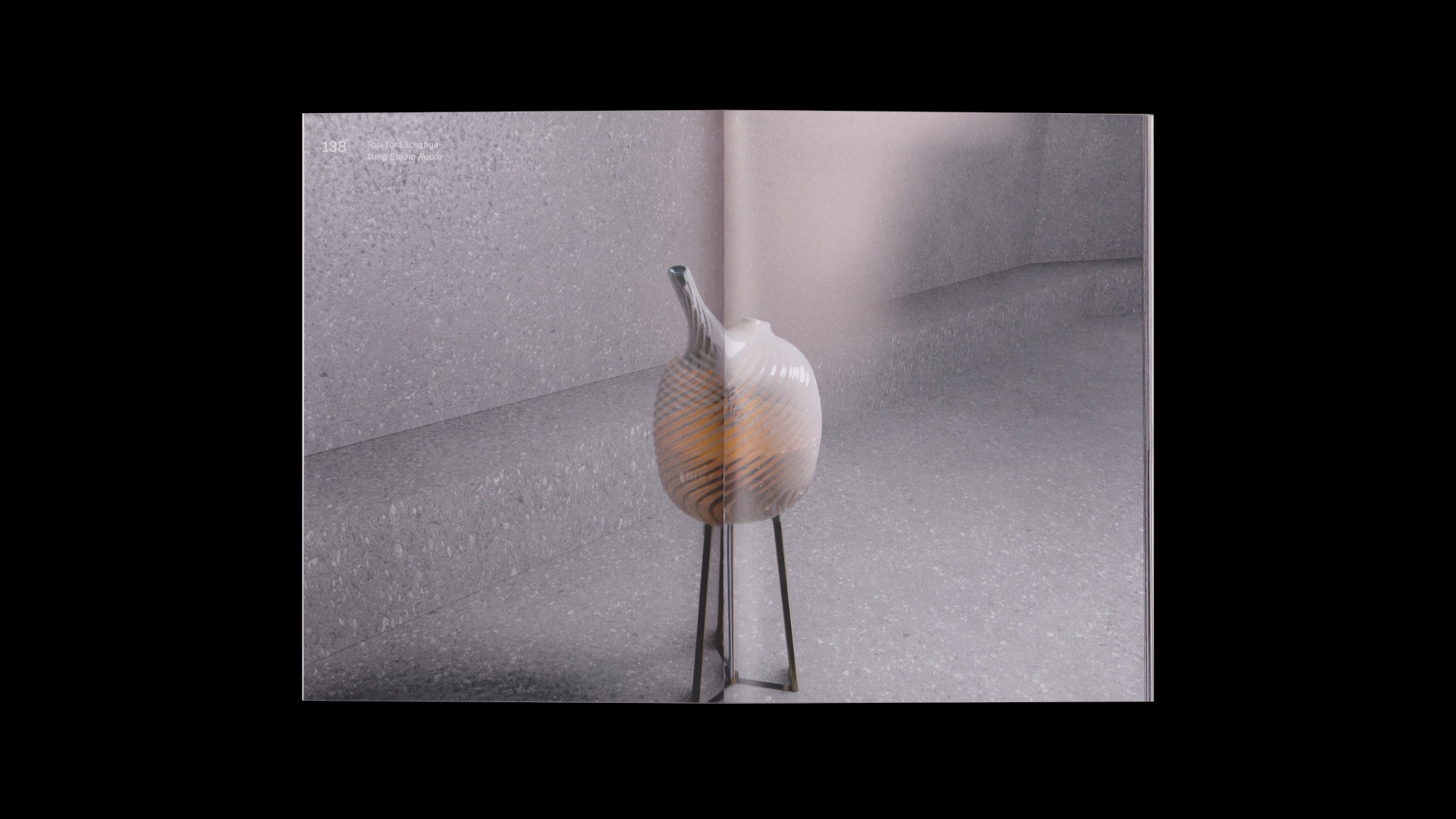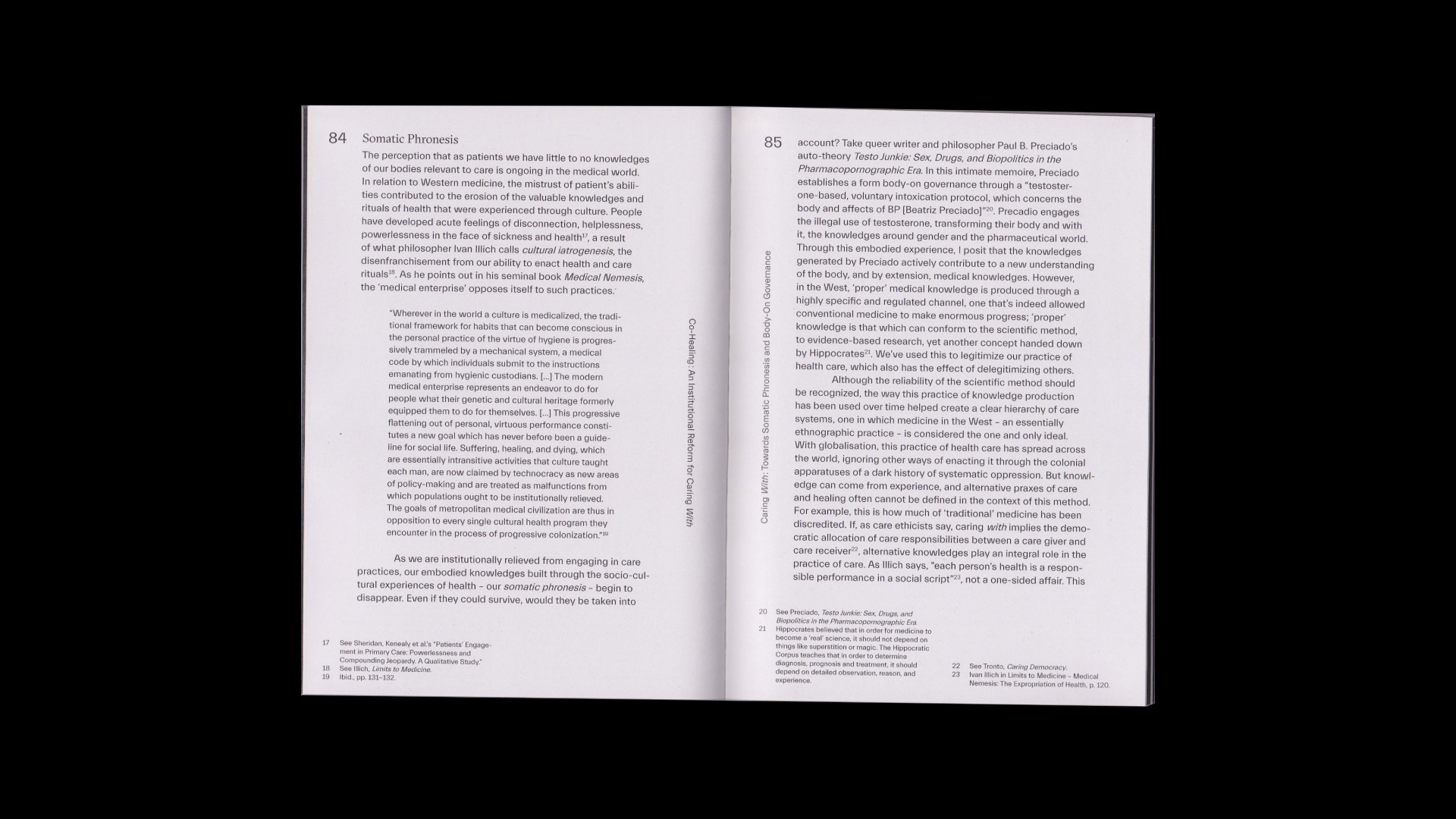co-healing: an institutional reform for caring with, master thesis 'co-healing: an institutional reform for caring with' investigates the ways in which structural inequalities and paternalism within western medical care have severely limited patient agency and restricted the development of alternative care models. at the same time, growing social inequality within these societies has highlighted the limits of our current caring for model, even while the deeply rooted power hierarchies in the patient-clinician relationship continues to prevent patients from becoming active co-creators in their management of their own health and wellbeing. this thesis argues that any changes to our current care institutions, their systems and relationships must be shaped to reflect more democratic forms of caring, that seek to care with instead of care for.
building off a feminist ethics of care, evolutionary biologist lynn margulis’s theory of human-microbial symbiogenesis, and cross-cultural perspectives on hygiene and grooming practices, this thesis seeks to give shape to a form of caring with structured around body-on governance, somatic phronesis and a collective practice of microbial grooming. the author believes that enacting these matters of caring with plays a critical role in breaking down the restrictive and ubiquitous colonial ideals of scientific knowledge production, which restricts the co-production of knowledge systems of health among patients and clinicians. by designing an alternative social experience of health in which people co-heal with each other’s microbial matter, this thesis shapes a spatialized narrative in which caring with is not only a concept but a foundational tool for our becoming together in better health.
design academy eindhoven best thesis award 2020.
building off a feminist ethics of care, evolutionary biologist lynn margulis’s theory of human-microbial symbiogenesis, and cross-cultural perspectives on hygiene and grooming practices, this thesis seeks to give shape to a form of caring with structured around body-on governance, somatic phronesis and a collective practice of microbial grooming. the author believes that enacting these matters of caring with plays a critical role in breaking down the restrictive and ubiquitous colonial ideals of scientific knowledge production, which restricts the co-production of knowledge systems of health among patients and clinicians. by designing an alternative social experience of health in which people co-heal with each other’s microbial matter, this thesis shapes a spatialized narrative in which caring with is not only a concept but a foundational tool for our becoming together in better health.
design academy eindhoven best thesis award 2020.
